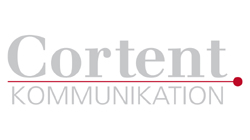The German Mittelstand
Exporting to emerging countries

The German Mittelstand needs to do more to meet clients’ needs.
Germany is one of the world’s leading exporting nations. In point of fact, this drive to export serves to make up for the occasional period of slack when there is a downturn in the domestic market. Be that as it may, it also stirs up envy about the German economy in certain quarters. Only recently did the United States Secretary for Trade feel the need to complain to Germany for having produced too high a trade surplus. Germany’s trading clout was becoming a threat to European stability not to mention the global economy.
Small- and medium-size companies who sell to emerging countries, however, do have to take care. A study carried out by company advisor Roland Berger reveals that they run the very real risk of developing products that their destination has no use for. From a survey conducted over 200 financial experts of small- to medium-sized companies with a turnover of 6 thousand million Euros or less, it emerged that only one in four claimed to know the details of the needs of their clients in emerging countries. This is indeed surprising because emerging countries are acknowledged by experts to having become an important mainstay of the German economy. Every manufacturer ought to know the needs of their customers – especially those in important markets.
That makes it comforting to know that many companies interviewed acknowledge the problem and have begun to implement concrete measures to resolve it. 71 percent affirm that they are close to completing a new portfolio of products that better responds to future needs and, furthermore, to be exploring new avenues of growth. More still are those who state that they have set increasing efficiency within their production process as their top priority.
The study also provides an interesting cross-section of the exports to the more important emerging countries which, in addition to Brazil, Russia, India and China (BRIC) also include Mexico, Indonesia, South Korea and Turkey (MIST). The terms of the study, carried out among 200 small- to medium-size industries with a turnover of up to 6 thousand million Euros could raise doubts that its validity vis-à-vis Mittelstand as defined by IFM (German Institute for Mittelstand Research – Institut für Mittelstandsforschung) is somewhat limited. For IFM, the term Mittelstand incorporates all the medium and small companies which, with up to 500 employees generate a turnover of up to 50 million Euros; however Companies of this size, however, rarely have the resources to take their products to these markets on their own, so they get there by indirect exportation. This means that the product of small- to medium-size industries become woven into the fabric of companies who are active on the world market and, thence, get to far-off markets through their channels of distribution.
Small- to medium-size industries ought to learn from the success stories of companies that have developed markets in emerging countries. SDax-listed seed cultivation company KWS Saat AG is an excellent case in point and example to follow. It has worked together with the largest seed producer in China for almost thirty years, and thanks to this cooperation it has become the largest western supplier of hybrid maize to China. Since 2012 KWS has insistently lobbied its subsidiary companies to tackle business operations in Latin America in production and selling. Local partners are familiar with their markets’ habits and customs, commercial and otherwise, and by extension, clients’ needs.















